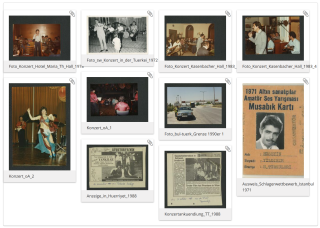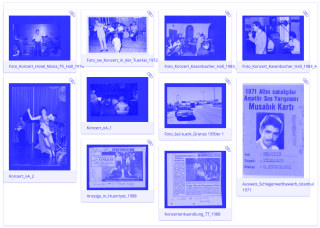
Subject area
Marginalised knowledge
Česká verze níže.
Knowledge connects people, but it can also divide them. This not only applies to the institutionalised separation between non-scientists and experts but also to the many fault lines within Central and Eastern European societies. The department takes the term »citizen« in »citizen science« in its diverse meanings and examines how participation in science emboldens inclusion and, by extension, citizenship. One of the department’s focuses, therefore, is on the knowledge repositories and practices of marginalised groups. These are central questions in a region whose history has been and continues to be shaped by multiethnicity, multi-religiosity and multiculturality, as well as by processes of nationalisation and homogenisation, ethnic conflicts and purges, communist rule and post-communist transformation. The knowledge of refugees, migrants and other members of marginalised communities often remains invisible and unacknowledged.
The archives of marginalised groups deserve special attention. Drawing on approaches from post-colonial studies, the department’s projects aim to critically reflect on hierarchies and exclusions in the archives created and organised by state agencies. We test alternative readings to identify and reconstruct the voices of different actors and explore their agency. Through documentation and re-search, people who have experienced exclusion and migration make a claim to academic recognition and inclusion. By means of projects guided by scholars, we support people in telling and reflecting on their own histories, which can also take literary or other kinds of artistic forms.
Marginalizované vědění
Vědění spojuje, ale může také rozdělovat. To platí nejen pro institucionalizované dělítko mezi laiky a experty a expertkami, ale také pro různorodé hranice uvnitř společností ve středovýchodní Evropě. Oddělení vychází z pojmu »občan« v »občanské vědě« v jeho různých významech a zkoumá, jak účast na vědecké práci povzbuzuje začlenění do společnosti a tím i občanství. Oddělení se proto zaměřuje na znalosti a praktiky marginalizovaných skupin. V regionu, jehož dějiny byly a jsou charakteristické multietnicitou, multireligiozitou a multikulturalismem, stejně jako nacionalistickými nároky, homogenizačními myšlenkami či etnickými konflikty a čistkami, ale také komunistickou vládou a postkomunistickou transformací, jsou to klíčové otázky. Zejména vědění uprchlíků, migrantů a dalších příslušnic a příslušníků marginalizovaných komunit zůstávají často neviditelné a nepovšimnuté.
Zvláštní pozornost si zaslouží archivy marginalizovaných skupin. Projekty oddělení vycházejí z přístupů postkoloniálních studií a jejich cílem je kriticky reflektovat hierarchie a vyloučení v archivech vytvořených a organizovaných státem. Zkoušíme alternativní čtení s cílem rozpoznat a rekonstruovat hlasy různých aktérů a zkoumat jejich agency, schopnost vlastního jednání. Lidé, kteří zažili marginalizaci a migraci, se zároveň prostřednictvím dokumentace a výzkumu domáhají svého práva na uznání a vědecký zájem. Prostřednictvím projektů doprovázených akademickými pracovníky je podporujeme ve vyprávění a reflexi jejich vlastních příběhů, které mohou mít i literární nebo jinou uměleckou podobu.
